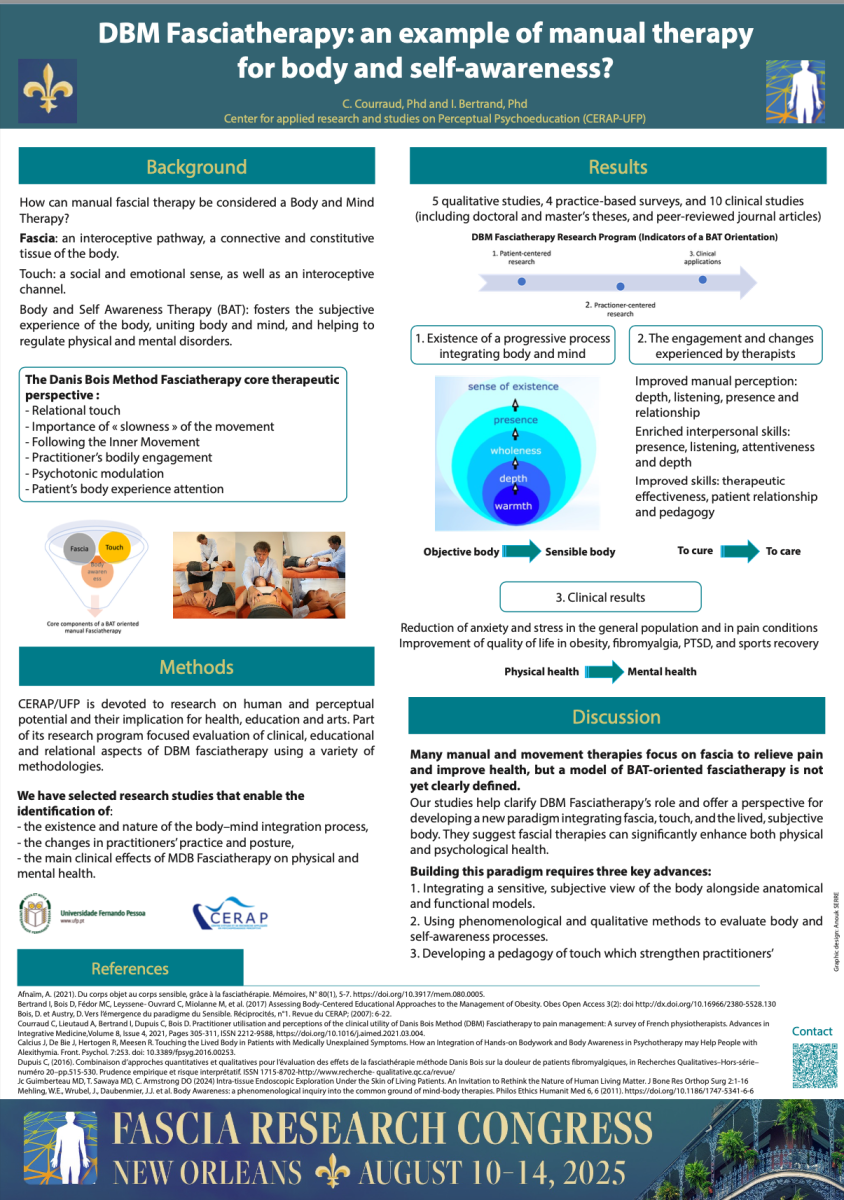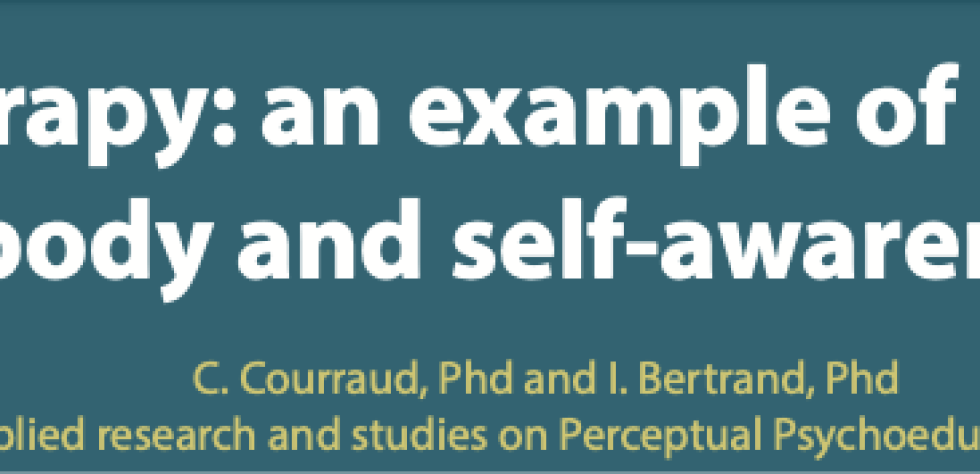Introduction
Numerous manual and movement therapies focused their action on fascia properties to relief pain, treat somatic deseases and also manage health. Recently studies shows that fascia could be considered as an interoceptive pathway and so suggest that it could be could involved in Body and Self Awareness process. This paradigm focused its interest on fascia because they considered this tissue as the missing link. It is based on phenomenological perspective and existential philosophy aims to enhance embodiment process and subjective experience of the body. It has been developed in the field of mental health and more recently applied in the field of physical therapy to manage somatic disorders and pain.
DBM (Danis Bois Method) Fasciatherapy, a manual and gestual therapy, has been designed for a long time as an approach which emphasizes the role of the fascia in achieving body-mind balance. It uses manual touch to change body perception, enhance the subjective body experience for improving and improve physical and mental health. This communication summarizes the results of research which illustrate the embodiment process and the clinical results observed.
Methodology
The CERAP/UFP (Center for Applied Research and Studies in Perceptual Psychoeducation) studies the human ability to develop body and self-perception and its applications in health, education and art. It investigates Perceptual Psychoeducation of Fasciatherapy through various qualitative and clinical methodologies. Part of CERAP's investigations is devoted to evaluate clinical, educational and relational aspects of DBM Fasciatherapy.
We have selected the qualitative research conducted at CERAP that is suitable for identifying and understanding the nature of the embodiment process experienced by patients during fasciatherapy sessions.
We have also collected research that highlights the main clinical effects of fasciatherapy on both physical and psychological health.
Results
The results of qualitative studies highlight the existence of a progressive process of embodiment (warmth, wholeness, depth, presence and sense of self) accompanied by overall well-being (body unified, release, decrease pain and tension). All patients had changed their body perception and relate experience of the body as a strong feeling of Sense of embodiment, organic grounding of identity and self-esteem. Clinical research results indicate that DBM Fasciatherapy has an impact on various clinical situations like Medically Unexplained Symptoms, chronic low back pain, anxiety, fibromyalgia, post-traumatic syndrome or obesity.
Conclusion
These results provide a better understanding of DBM fasciatherapy as a therapy for the body and self-awareness, and suggest that fascia therapies can make a major contribution to the overall health of individuals, both somatically and psychologically. To do so, they need to broaden their paradigm by integrating a subjective conception of the body and relying on methodologies such as phenomenology and qualitative research, which enable these processes of body and self-awareness to be objectified and evaluated.




